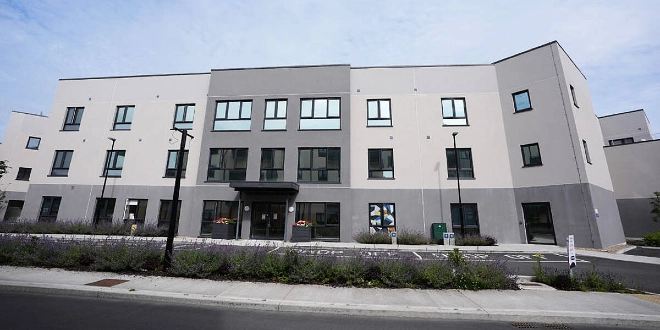Taoiseach Micheál Martin has expressed support for imposing higher fines on nursing home operators that consistently fail to meet required care standards, and suggested closure must remain an option when repeat non-compliance occurs. He made the remarks during the Dáil’s Leaders’ Questions in response to revelations from a recent investigative broadcast, describing the content of the programme as deeply disturbing and stating adult safeguarding laws are being introduced under the current government.
Labour leader Ivana Bacik criticized the effect of the exposé, saying it severely undermined public trust in nursing home oversight and damaged faith in the inspection system. She highlighted that the Health Information and Quality Authority (HIQA) relied primarily on restricting admissions to non-compliant facilities—an approach that did little to improve conditions for residents already in care. Bacik emphasized that serious accountability measures are needed to ensure resident safety.
Sinn Féin health spokesman David Cullinane voiced concern over the substantial proportion of nursing homes now privately owned, estimating around 75%. He argued this shift resulted from the state withdrawing from public nursing home provision and allowing private operators to fill the void. Cullinane also pressed for mandatory reporting of abuse and formal adult safeguarding legislation to strengthen protections for residents.
HIQA Enforcement and Corporate Accountability
HIQA reported that two homes operated by Emeis Ireland—Firstcare Beneavin Manor in Glasnevin and The Residence in Portlaoise—received formal warnings indicating their registrations could be cancelled if they failed to address serious care concerns. The regulator subsequently alerted Gardaí over suspected care deficiencies at both homes. In her written statement to the Oireachtas Health Committee, HIQA CEO Angela Fitzgerald expressed deep concern over the staff conduct revealed in the programme, apologized to affected individuals, and confirmed escalated enforcement actions and reviews of all 23 Emeis-operated facilities.
During an 18-month span, regulators made four inspections at Beneavin Manor and three at The Residence, flagging issues such as staffing shortfalls, inadequate governance, insufficient record-keeping, and a lack of structured activities for residents. An interim HIQA report noted 198 abuse notifications from January 2022 at Beneavin Manor and 40 at Portlaoise since December 2023.
Fitzgerald acknowledged that HIQA’s regulatory framework requires improvement and outlined plans for reform within her organisation. She stressed that the investigative footage should serve as a catalyst for broader change at multiple levels, and she reaffirmed HIQA’s commitment to ensuring resident safety.
Urgent Calls for Legal Reform and Regulator Enhancement
Political leaders, including Martin, Ivana Bacik, and David Cullinane, have called for upgrading HIQA’s enforcement capabilities, including the introduction of substantial financial penalties for corporate operators and enhanced regulatory powers at the home ownership level. Some have also urged the passage of adult safeguarding legislation and mandatory abuse reporting to strengthen the state’s protective mechanisms.
The exposé has prompted a wide-ranging review of Emeis Ireland homes and intensified scrutiny of HIQA’s inspection practices. HIQA has indicated that it increased oversight across the group and conducted additional inspections after the public broadcast. However, critics argue that delays in follow-up and limitations in current law mean accountability remains inadequate.
Observers have drawn parallels with the Leas Cross scandal of the mid-2000s, which uncovered systemic neglect and led to the creation of HIQA. Critics warn that similar issues may continue to emerge unless regulatory tools are updated. Additionally, recent sectoral reports highlight the critical role of nursing homes within Ireland’s care system and the lack of a clear policy vision for future residential care in national health strategies
 The Daily Star Ireland
The Daily Star Ireland

